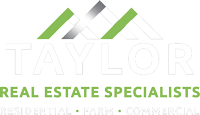
What is a 1031 Exchange for Selling Commercial Property?
A 1031 exchange allows you to sell commercial property and purchase a new one of equal or greater value, while deferring capital gains tax, depreciation recapture tax, and other related taxes. This strategy is a great way for property investors to reinvest without immediate tax burdens.
10 Key Points to Know About a 1031 Exchange for Commercial Property
1. Equal or Greater Value Requirement
To fully defer taxes, the replacement property must be of equal or greater value than the net selling price of your commercial property. The net selling price is the contract price minus closing costs.
If the replacement property is worth less, you’ll owe taxes on the difference.
2. Investment or Business Use Only
The property must be held for business or investment purposes. This means primary residences and second homes do not qualify for a 1031 exchange.
3. Types of Qualifying Properties
Commercial real estate, such as office buildings, retail spaces, and industrial properties, qualifies for a 1031 exchange. You can also exchange commercial property for land, multi-family units, or residential rental properties.
4. 180-Day Deadline
From the sale of your commercial property, you have 180 days to complete the 1031 exchange. This time frame starts when your relinquished property is sold.
5. 45-Day Identification Period
Within the first 45 days, you must identify up to three replacement properties. If you choose more than three properties, the total combined value cannot exceed 200% of the net selling price of the relinquished property.
6. Qualified Intermediary (QI) Requirement
To complete the exchange, you must use a Qualified Intermediary (QI). A QI cannot be your real estate agent, CPA, or attorney. Choosing a QI with a Certified Exchange Specialist® (CES®) designation ensures a smooth process.
7. Flexibility in Property Types
A 1031 exchange offers flexibility. You can exchange commercial property for other types of real estate, such as residential rental properties or vacant land. You’re not restricted to like-kind properties.
8. Tax Deferral Through Ongoing Exchanges
By continually completing 1031 exchanges, you can defer taxes indefinitely. Upon your passing, your estate benefits from a stepped-up basis, meaning no capital gains tax is due.
9. Consult with Your Tax Professional
Work with a CPA or tax advisor to plan your 1031 exchange. They can help you understand the tax implications and ensure you follow IRS rules.
10. Start Early with Your Qualified Intermediary
Contact a Qualified Intermediary before closing the sale of your commercial property. This ensures you meet all deadlines and complete the transaction smoothly.
Final Thoughts
A 1031 exchange for commercial property is an excellent way to defer taxes while reinvesting in new properties. By following the rules and guidelines, you can maximize your investment returns without immediate tax obligations. Always consult with a qualified intermediary and tax professional for a smooth process.
Although we have armed you with some details on 1031 exchanges, at Taylor Real Estate Specialists we understand the complexities and time sensitive nature of these transactions. Therefore, we are glad to assist you with the entire process. Contact us today to discuss your needs and timeline.
For more information on qualified intermediary services read more at www.Midland1031.com.
Still debating on whether it makes sense to contact a commercial broker? Read more about Why Hire a Commercial Broker to Sell Your Investment Property
